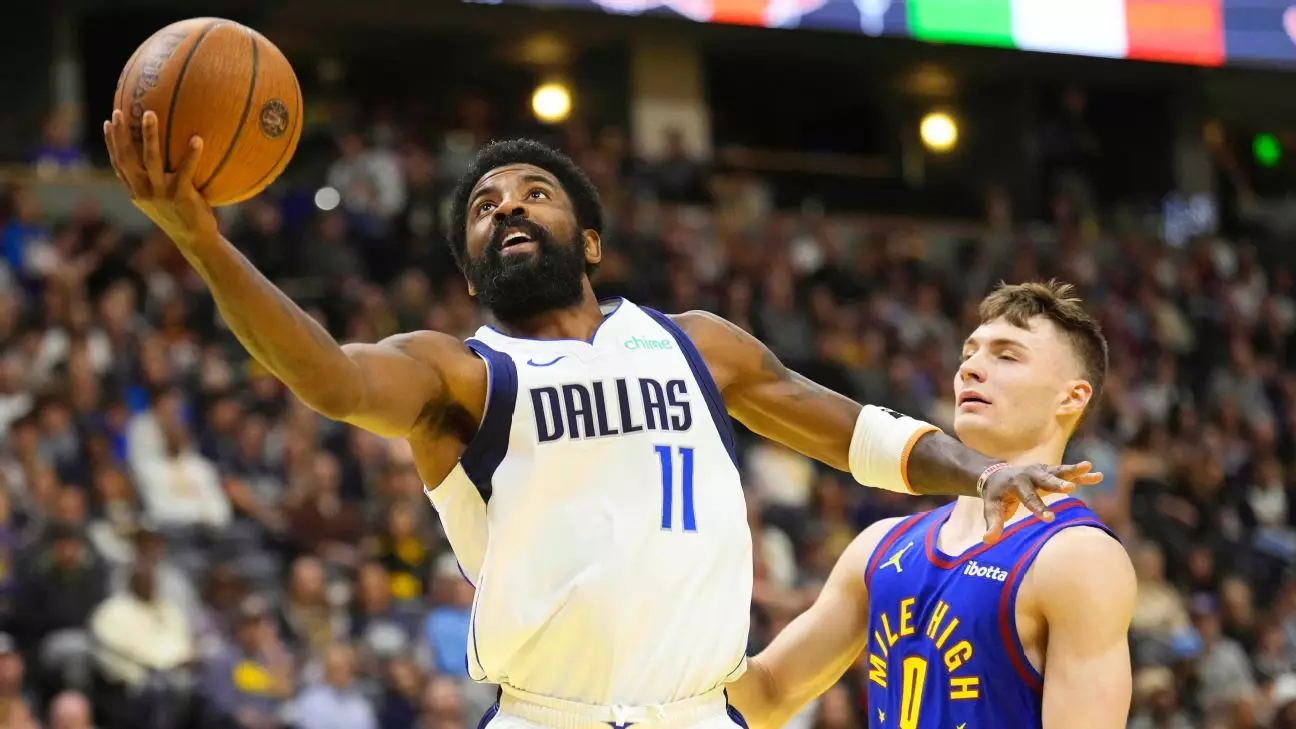Dallas Mavericks star Kyrie Irving made his comeback on Tuesday after missing five consecutive games, only to experience difficulties as he faced off against the Denver Nuggets. Despite the anticipation surrounding his return, Irving’s performance was far from stellar, as he finished the game with a mere 11 points, shooting 4-of-18 from the field. This disappointing outing concluded with a significant 118-99 loss for the Mavericks, highlighting the challenges not just for Irving but for the entire team as they seek to regain their footing amid ongoing injuries and setbacks.
In a candid interview following the game, Irving revealed that he was diagnosed with a bulging disk in his lower back. This revelation adds a layer of complexity to his recovery journey, as players often struggle with back injuries that can vastly influence their performance. While ESPN reported the specifics of his diagnosis, the Mavericks listed it merely as a lumbar sprain, perhaps playing down the potential implications for his performance. For Irving, this marks a new chapter, as he confesses to never having dealt with back pain previously. “The last almost two weeks have sucked,” he candidly stated, shedding light on the mental and physical toll this injury has taken on him.
Despite his misgivings, Irving expressed a strong desire to continue contributing to the team, stating his intention to play against the New Orleans Pelicans the following night. His dedication is commendable, especially given the pain he describes as so severe it impeded his ability to meditate—a practice often used for mental relief. Irving’s sentiment of gratitude for being able to play, despite the discomfort, underscores his resilience and commitment to the sport. It speaks to a broader narrative often witnessed in professional athletics: the relentless drive to perform, even when facing physical adversities.
Irving’s return coincides with other significant injuries within the Mavericks’ roster, most notably the absence of Luka Doncic, who has been sidelined since suffering a calf strain on Christmas Day. This confluence of injuries poses a formidable challenge for Dallas as they strive to maintain competitive momentum. The loss of center Dereck Lively II during the same game due to an ankle sprain further complicates matters, leaving the Mavericks struggling for stability. The situation raises questions about the depth of the roster and the ability of the remaining players to step up during critical matches.
As Irving navigates the treacherous waters of managing a bulging disk, he acknowledges the importance of smart decision-making. With the support of his medical team and insights from teammates who have dealt with similar injuries, he appears to be taking a measured approach towards his recovery. While the immediate focus is on playing through the discomfort, the long-term implications of his back injury remain a point of concern for both him and the Mavericks franchise. The journey ahead is fraught with uncertainty, but Irving’s attitude suggests a refusal to let this setback define him. Whether he can reclaim his previous form while juggling the demands of the game and his health will be closely watched by fans and analysts alike.

